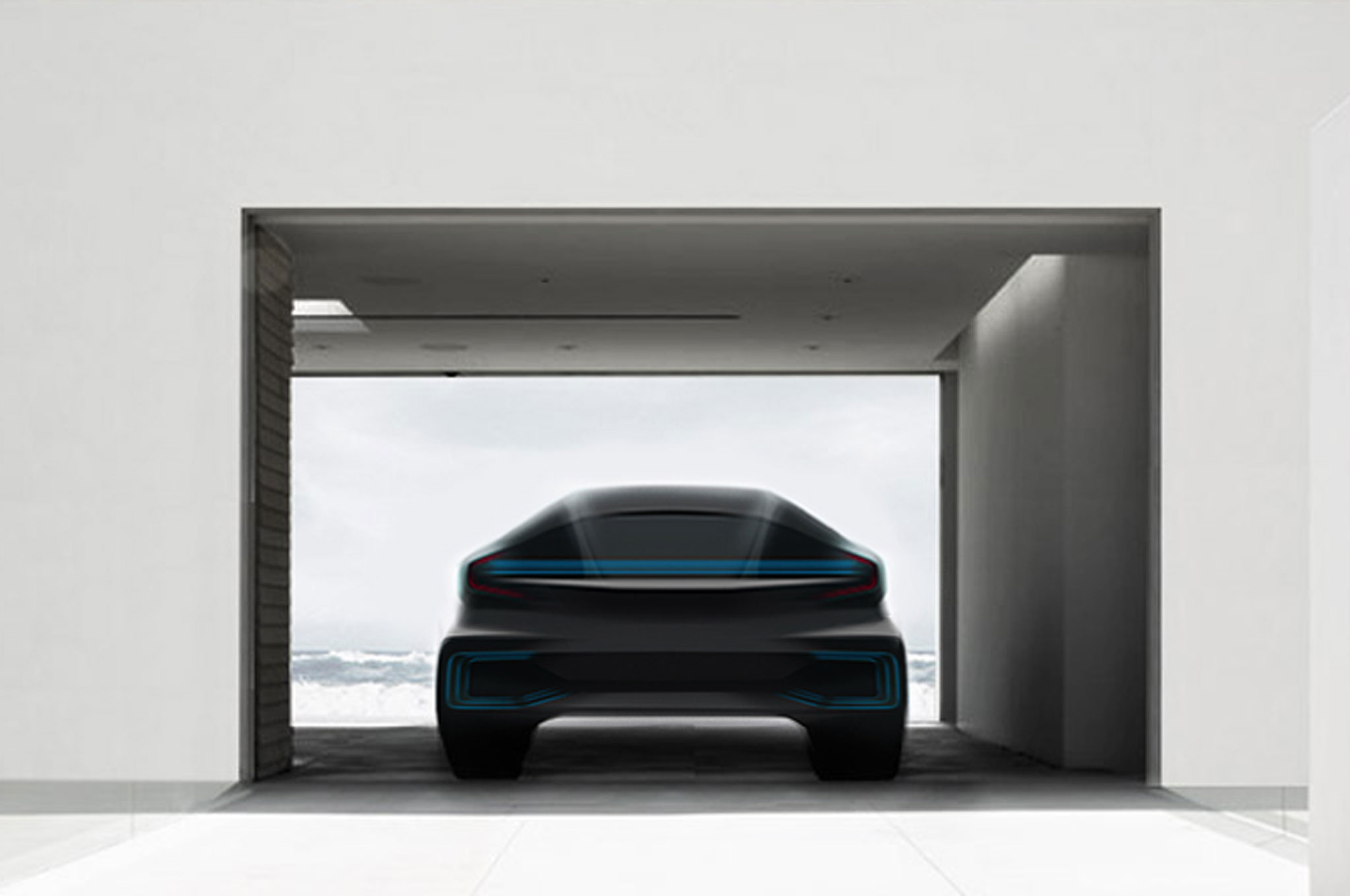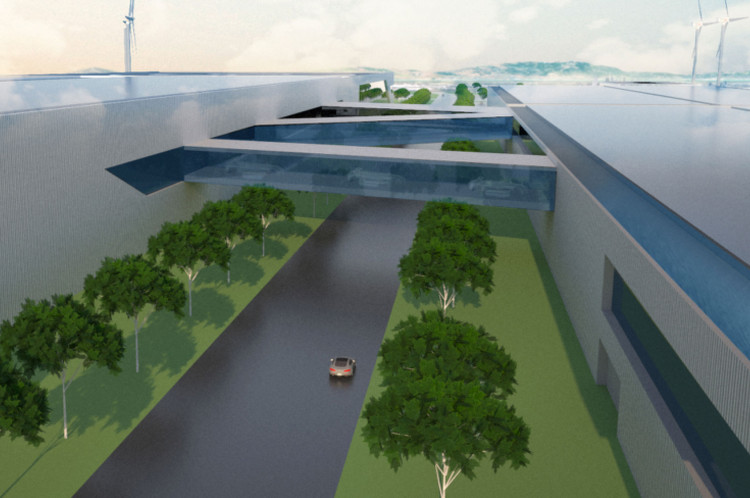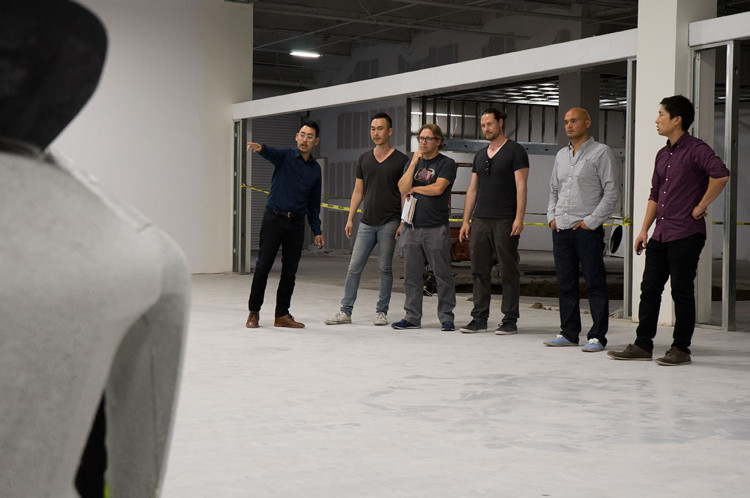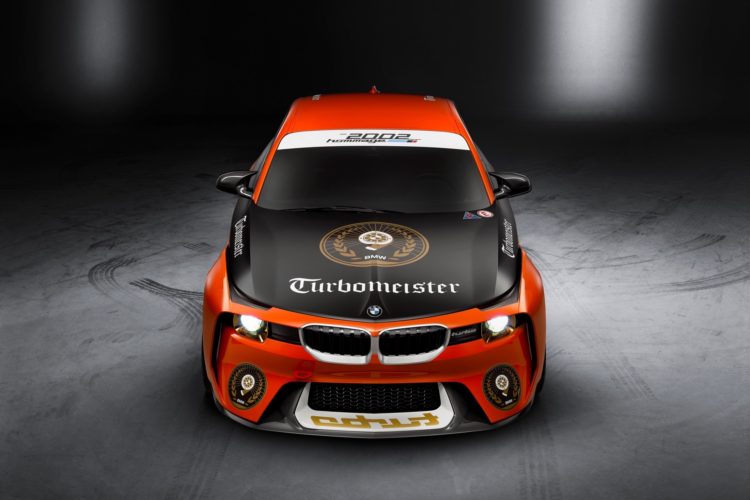At the moment, in terms of electric vehicle technology, the biggest rival to BMW is Tesla. Tesla has been the leader in pure EVs for quite some time now. Tesla is one of many Silicon Valley EV startups, but it’s the only one to actually make it to production and become profitable. All of these other EV startups are nothing more than smoke and mirrors. New car companies claim to be creating the next best thing all of the time. However, a new one has popped up and seems to be the real deal. At least for now.
Faraday Future.
Faraday Future, or FF, is a Silicon Valley based startup aimed at taking the Tesla Model S head on. And they seem to mean business. At the moment, FF is based out of a former Nissan research and design building in Gardena, California. FF currently has over 200 employees and plans on having more than 300 by 2016. FF also claims that its first car, unnamed as of now, will be released into owner’s driveways in 2017. A lofty goal considering FF doesn’t even have manufacturing facility yet and the only thing we know about its first car is that it will be a sort of high-riding sedan and be fully electric. There is a minor render on the FF website, FaradayFuture.com.
So far, this just sounds like another EV startup giving us the typical sales speech on how it will be better than everyone else’s and cheaper and faster and it’ll even make you more attractive. That’s until you see some of the employees FF has hired. Let’s give you a rundown of all of the former automotive workers who now work for FF:
- Nick Sampson — Product Architect, former Vehicle and Chassis Engineering for Tesla Model S
- Richard Kim — Head Design, former BMW i8 Concept, BMW i3 Concept
- Silva Hiti — Sr. Dir. of Powertrain, former lead powertrain at Chevy Volt
- Pontus Fontaeus — Interior Design, former Lamborghini, Ferrari, Land Rover
- Page Beermann — Exterior Design Chief, former Creative Director at BMW (designed the 3 Series GT)
- Porter Harris — Batteries, former SpaceX
Those are some pretty esteemed and qualified people who left great jobs at some of the automotive world’s biggest manufacturers to work with FF. Suddenly, FF seems to mean serious business. It has also made some claims as to what its first car will have.
- It will have 15 percent higher specific energy than a Tesla Model S 85 kW-hr pack. That works out to 98 kW-hr.
- It’s a multi-cell solution, like Tesla’s.
- The company is aiming for the highest energy density and specific energy vehicle on the market.
- It will be single cell, thermal-runaway fault tolerant (will not propagate to other cells)
- Single or groups of cells can be replaced.
- Module designed for mass production, utilizing new processes and technologies
- Same battery design to be used in all vehicles with only a change in capacity (no change in voltage)
- The higher energy density allows for larger crumple zones than on the Tesla Model S.
So it seems as if FF has done its homework and fully intends to dethrone Tesla. But what does that mean for BMW? Well, I don’t think BMW is going to worry too much. BMW seems to be focused on doing its own thing, focusing on multiple different technologies like plug-in hybrids and hydrogen fuel-cell powered cars. So BMW is probably not too concerned with yet another Silicon Valley startup claiming to be the next savior of our motoring world.
However, if FF can make as big of an impact on that world as Tesla did, then BMW might have to take notice and realize that there’s another bit player in the game. We can’t know for sure, but it seems as if FF is not messing around.







































































